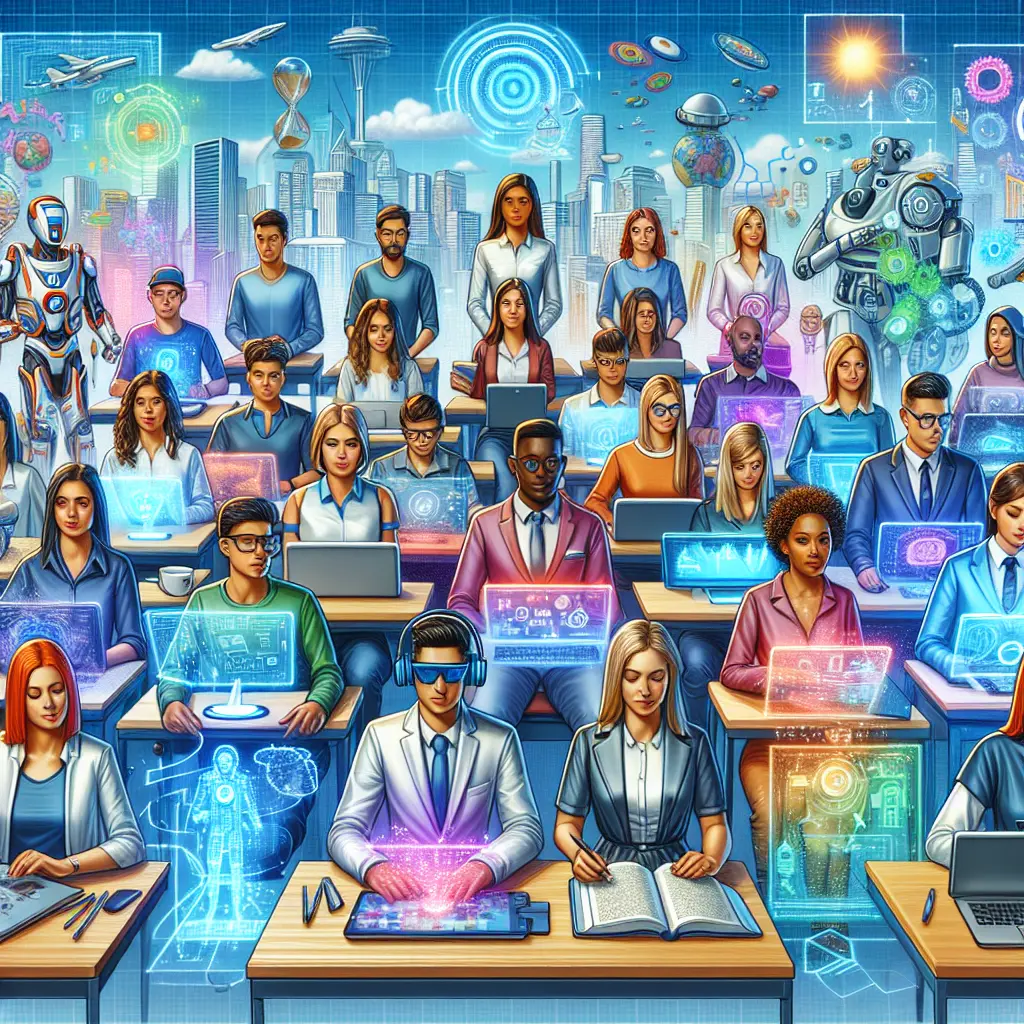
The landscape of education is transforming rapidly, with e-learning at the forefront of this revolution. As we delve into 2023 and beyond, numerous emerging technologies and methodologies promise to redefine how knowledge is disseminated and absorbed. Let's explore the key trends in e-learning and how they are shaping the future of online education.
The Rise of Innovative Online Course Design
E-learning trends in 2023 are significantly influenced by cutting-edge online course design innovations. These advancements are not only enhancing the learning experience but are also pivotal in making education more accessible and effective. The integration of AI in e-learning, for instance, allows for the creation of more personalized learning experiences. AI algorithms can adapt content to suit individual learning speeds and styles, thereby boosting learner engagement and retention.
Virtual Reality and Immersive Learning Environments
Virtual reality in education is turning heads with its ability to simulate real-world environments for immersive learning experiences. This technology is particularly beneficial in fields like medicine, architecture, and history, where practical, hands-on experience is crucial. Immersive learning environments help students understand complex subjects in a more engaging and interactive way, leading to higher retention rates.
The Evolution of Microlearning and Gamification
Microlearning platforms have transformed the e-learning landscape by providing short, focused chunks of content that are easier to digest and retain. Coupled with gamification in e-learning, these platforms make learning not only more effective but also enjoyable. Gamification introduces elements like points, badges, and leaderboards, making the learning process more interactive and competitive.
Adaptive Learning Technology
Adaptive learning technology stands out as one of the most significant online course design innovations. It adjusts the content based on a learner’s performance in real-time, offering a highly tailored educational experience that meets the unique needs of each student. This approach has shown remarkable success in improving outcomes by addressing knowledge gaps more efficiently.
Blockchain and AR in E-Learning
Blockchain technology is beginning to play a crucial role in verifying educational credentials in a secure manner. Meanwhile, AR applications in e-learning are enhancing the interactive quality of digital education, allowing students to see and interact with 3D models and simulations, bridging the gap between theoretical and practical learning.
The Future of MOOCs and Online Learning Analytics
The MOOC evolution continues as these courses become more refined with improved completion rates and enhanced quality of content. Online learning analytics play a critical role here by providing insights into student engagement and effectiveness of course material, which in turn helps educators improve their course offerings.
Cloud-Based Learning Systems
Cloud-based learning systems are crucial for facilitating the global scalability of e-learning solutions. They allow easy access to educational resources from anywhere in the world, provided there is internet connectivity. This has been especially significant in democratizing education across various socioeconomic sectors.
Mobile Learning Advancements
With the increasing use of smartphones, mobile learning advancements have made education more accessible than ever. Learners can now access educational content on-the-go, which is not only convenient but also aligns with the modern lifestyle that combines work, learning, and leisure.
Enhancing E-Learning Accessibility
E-learning accessibility improvements continue to receive attention as educators strive to provide equal learning opportunities for all, including those with disabilities. Technologies such as screen readers, text-to-speech, and captioning services are becoming standard features of e-learning platforms.
Social Learning Technologies
Social learning technologies incorporate social media elements into e-learning environments, facilitating peer-to-peer interaction and collaboration. This approach leverages the human aspect of learning, allowing students to exchange ideas, discuss problems, and enhance their understanding collectively.
Recent News and Updates in E-Learning
Can Online Courses Get You a Job in India? - Yes, many companies recognize online certifications, especially for roles like full-stack developers, as seen with top companies hiring in this sector in August 2024.
Digital Education Market Growth - Expected to reach $176.49 billion by 2030, the digital education market's growth at a CAGR of 31.7% indicates robust industry health and increased adoption rates (Stellar Market Research).
Python Programming Courses - Reflecting the demand for programming skills, over 80 Python courses from beginner to advanced levels highlight educational diversification in tech.
A-Level Results Day 2024 - With many students turning towards online courses post-results day for additional qualifications or remedial learning, the relevance of e-learning platforms continues to surge.
Earnings Calls and R&D Updates - Companies like 4Front Ventures Corp., Rekor Systems Inc., Movano Inc., and Arrowhead Pharmaceuticals highlight ongoing investments in digital technologies which potentially include educational aspects for training and development.
In conclusion, the future of online education looks promising with continuous innovations improving how we learn. From AI-powered personalization to VR-based immersive experiences, the educational field is undergoing a transformation that promises not only broader access but also higher quality learning experiences.
Signing off, Aaron Copeland